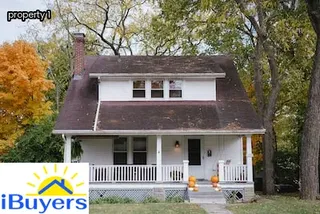The foreclosure process in Oregon can be a difficult one to understand and it is important to be aware of what steps may need to be taken if you find yourself at risk of entering this process. Preforeclosure is the period of time between when a homeowner misses their mortgage payments and when their property officially enters the foreclosure process.
During preforeclosure, lenders will attempt to contact the homeowner with notices and reminders, as well as provide any additional information on how to avoid foreclosure. Foreclosure occurs once all other attempts have been exhausted and the lender has obtained a court order allowing them to take possession of the property.
In Oregon, lenders must use legal means such as publishing notice of default in local newspapers and sending written notice before they can initiate foreclosure proceedings against a homeowner. Understanding these basics about preforeclosure and foreclosure in Oregon can help homeowners take action and avoid losing their home.

In Oregon, the foreclosure process can occur through either judicial or nonjudicial means. With a judicial foreclosure, the lender must file a lawsuit in court and receive a judgment of foreclosure from the court.
This is generally a more lengthy process than a nonjudicial foreclosure, as it requires several steps, including notifying the homeowner of their rights and providing them with an opportunity to present any defenses. In contrast, a nonjudicial foreclosure does not require court action and is usually quicker and simpler for lenders.
It involves the lender sending out notices to the homeowner and publishing public notices of foreclosure proceedings. To avoid either type of foreclosure in Oregon, it is important to stay on top of mortgage payments, understand all relevant laws regarding foreclosures in Oregon, and be aware of available financial assistance programs that may help with delinquent payments or modifying existing loan terms.
Once a breach letter has been issued, the foreclosure process in Oregon begins. If a homeowner is unable to make the necessary payment within 30 days, the lender can then file a Notice of Default with the county recorder's office.
This document will state that the loan is in default and provide a date by which the homeowner must pay off their debt. After this date passes, the lender can then proceed to sell the property at an auction.
The proceeds from this sale go towards paying off any remaining debt on the loan. It is important for homeowners facing foreclosure to be aware of their rights and options throughout this process and to seek legal advice if needed.
Fortunately, there are ways to avoid foreclosure, such as negotiating with lenders or obtaining assistance from housing counseling services. Being proactive and reaching out for help early can make a huge difference in preventing foreclosure from occurring.

When it comes to understanding the foreclosure process in Oregon, it is important to know when it begins. The foreclosure process starts when a homeowner has not made their mortgage payments for a certain period of time, typically two or three months.
At that point, the lender will begin the legal process of foreclosure which includes sending a Notice of Default explaining the debt and giving the borrower an opportunity to make good on their payments. Unfortunately, if they are unable to do so, then the lender may move forward with repossessing the property and selling it at auction.
Understanding when foreclosure begins can help homeowners in Oregon avoid this unfortunate situation by ensuring that mortgage payments remain up-to-date and that any potential delinquencies are addressed quickly.
As a homeowner in Oregon, it is important to understand your rights during the foreclosure process. You have the right to receive written notice and be informed of all deadlines and court hearings related to the foreclosure process.
The lender must also provide you with detailed information regarding their attempts to contact you, as well as any offers they may have made, before they can proceed with foreclosure. Additionally, if you believe that the lender has made an error or violated a law in their handling of your mortgage, you are entitled to dispute the foreclosure and file a complaint with Oregon's Department of Consumer & Business Services.
Furthermore, if you are able to make a payment within 10 days of receiving notice of a foreclosure sale date, then the sale can be stopped. Ultimately, understanding your rights during the foreclosure process in Oregon can help you avoid foreclosure and protect your home from potential repossession.

The nonjudicial foreclosure process in Oregon is a common practice for lenders to reclaim their collateral if a borrower defaults on their loan. It is important to understand the steps involved in this process so that you can develop strategies to avoid it.
The first step is the lender issuing a Notice of Default, which means that the borrower has missed at least one payment and must take action within 90 days or the lender will begin foreclosure proceedings. After this period, the lender can issue a Notice of Sale and will set up an auction date for potential buyers to bid on the property.
Once a sale is completed, any remaining debt owed by the borrower must be paid in full or they will face serious financial consequences such as wage garnishment or credit issues. During this process, there are certain legal rights afforded to borrowers allowing them time to potentially reinstate their loan before the foreclosure proceeds.
It is important to consult with an attorney during this time as understanding these rights can enable you to prevent foreclosure and keep your home.
Oregon homeowners facing foreclosure can take several steps to avoid or delay the process. One option is to contact your lender and explain the circumstances of your financial hardship.
Many lenders are open to working out a repayment plan that fits within your budget. In some cases, this may involve reducing or suspending payments for a period of time.
If you have enough equity in your home, refinancing or taking out a second mortgage might be an option as well. Another alternative is to try selling the property yourself before it is foreclosed upon - this gives you control over when and how much you receive from the sale.
You can also look into home loan modification programs which offer more favorable terms and rates than what you currently have. Finally, filing for bankruptcy may be an effective way to keep lenders at bay while you explore other options for managing the debt.

Understanding Oregon Deficiency Judgments is an important part of understanding the foreclosure process in Oregon and how to avoid it. A deficiency judgment is a court order that requires the borrower to pay the difference between what was owed on the mortgage and what was received from the foreclosure sale.
In Oregon, if a foreclosure sale does not satisfy all of the remaining debt on a loan, then the lender may file suit for a personal money judgment against the borrower for any unpaid balance. This judgement can be enforced by garnishment of wages or bank accounts, or can remain as a lien on property until paid.
It is important to understand this concept when considering options to avoid foreclosure in Oregon, as these judgments remain even after a foreclosure has been completed. Knowing your rights and obligations under Oregon law will help you prepare for any potential deficiency judgments that may arise in your particular situation.
For Oregon residents facing the prospect of foreclosure, there are a few strategies to stop it. Homeowners should contact a HUD-approved housing counselor as soon as possible to discuss their situation and create an action plan.
This is especially important if the homeowner has already received a Notice of Default or Notice of Trustee Sale from the bank. It’s also important for homeowners to stay in regular contact with their lender, even if they can’t make payments.
There may be options available such as loan modification, short sale, or deed-in-lieu of foreclosure that can help avoid foreclosure. Additionally, some lenders may offer forbearance agreements which allow homeowners to temporarily reduce or suspend mortgage payments in order to catch up on delinquent payments at a later date.
Finally, bankruptcy may be an option for some homeowners as well and could provide them with additional time and breathing room to work out an affordable payment plan with their lender.

Working with an Oregon foreclosure lawyer can provide a range of benefits when attempting to understand the foreclosure process in Oregon and how to avoid it. An Oregon foreclosure attorney is knowledgeable about the state's laws involving foreclosure, making them well equipped to answer any questions you may have about the process and assist you in finding ways to prevent it from happening.
Foreclosure lawyers are also familiar with the various options available to those who are facing foreclosure, such as loan modifications, forbearance agreements and repayment plans that can help stop or delay the foreclosure process. Furthermore, having an experienced professional like a lawyer on your side can also make navigating through court proceedings much easier if a lawsuit must be filed.
With their expertise in understanding the intricate details of Oregon's foreclosure laws, an Oregon foreclosure attorney can help make sure that you get the best outcome possible for your situation.
Preparing for a judicial foreclosure in Oregon is a complex process that requires an understanding of the state's laws and regulations. It's important to understand how the foreclosure process works in Oregon, including what rights homeowners have, how lenders must comply with state law, and what steps can be taken to avoid foreclosure altogether.
Homeowners should be aware of the legal notices they will receive from the lender if they are behind on their mortgage payments. These notices typically include information about the lender's right to pursue foreclosure and any other remedies available under Oregon law.
Homeowners should also consult with an attorney if they are unsure of their rights or need help understanding any documents sent by the lender. Additionally, homeowners should research loan modification options and contact their lender as soon as possible to discuss alternatives before initiating a foreclosure action.
Finally, homeowners should review all documents carefully for accuracy and take steps to protect their credit rating during this difficult time.

Foreclosing on a home in Oregon can bring with it serious financial consequences. When your house is foreclosed upon, it means that you are no longer able to make payments on the loan associated with the property.
As a result, you lose ownership of the home and it is sold at an auction to cover the cost of the loan. This process can severely damage your credit score and may even lead to a lawsuit, as lenders will typically pursue legal action if they are not paid in full.
In addition, foreclosure often requires paying back all outstanding debts associated with the mortgage, including missed payments, late fees, and court costs. Finally, foreclosing on your home may also have tax implications depending on whether or not any equity was accumulated from previous payments made on the loan.
It's important to be aware of these potential risks when considering allowing your house to go into foreclosure in Oregon.
In Oregon, the Mortgage Redemption Period is an important part of the foreclosure process. It is the amount of time (usually between 90 to 150 days) that homeowners have to catch up on their mortgage payments or take other action to avoid foreclosure.
During this period, homeowners can negotiate with their lender in order to modify or refinance their loan, as well as work out any other issues that might be causing them financial hardship. Homeowners should also consider other options such as short sales and deed-in-lieu, which may enable them to get out from under a mortgage without going through a full foreclosure.
Understanding the Mortgage Redemption Period in Oregon is essential for anyone who has fallen behind on their mortgage payments and wants to avoid losing their home. Knowing what rights and options are available during this time could make all the difference in whether a homeowner is able to keep their home or not.

In Oregon, any surplus funds paid to the lender after a sale of property in a foreclosure process must be returned to the borrower. This is in accordance with Oregon law, which states that any funds remaining after all costs associated with the sale are satisfied must be returned to the borrower.
It is important for borrowers to understand their rights when it comes to reclaiming surplus funds after a foreclosure sale. In some cases, lenders may attempt to withhold these funds without providing proper notification or documentation.
Borrowers should make sure they are aware of their rights and contact the lender if they believe they have not received all applicable surplus funds from the sale of their property. Furthermore, understanding what steps need to be taken in order to avoid foreclosure can help borrowers protect themselves from this situation.
Taking proactive measures such as budgeting and planning carefully can help ensure that borrowers are not faced with unexpected financial hardship or put in a situation where they face potential foreclosure proceedings.
The role of the Trustee in a foreclosure in Oregon is an important factor to understand and can be the difference between a successful negotiation or an unsuccessful one. In Oregon, when a homeowner falls behind on loan payments, the lender will initiate the foreclosure process by filing a Notice of Default with the county clerk and appointing an independent third party called a Trustee to handle the sale of the home.
The Trustee is responsible for sending out notices to all parties involved as well as conducting the auction for sale of the property. It's also important to note that if there are any junior liens on the property, such as second mortgages or HELOCs (Home Equity Line Of Credit), that these must be paid off first before any proceeds from the sale go back to paying off the primary mortgage.
Having an understanding of how this process works can help homeowners facing foreclosure in Oregon better prepare themselves and work towards avoiding it altogether.

Defaulting on a mortgage loan in Oregon can have serious consequences, including the potential loss of property. If a borrower is unable to pay their mortgage payments, they are at risk of facing foreclosure by their lender.
This process can be stressful and time-consuming, as it requires legal paperwork and court appearances. As such, it is important for borrowers in Oregon to understand the foreclosure process and any options available to them to avoid going through this process.
Refinancing is one possible option that may be available to some borrowers; this involves renegotiating the terms of the loan, such as interest rate or payment amount, with the lender in order to make repayment more manageable. However, refinancing may not always be feasible for all borrowers; before considering this option, it is important for them to weigh up the costs and benefits associated with refinancing versus other alternatives such as debt consolidation or working with a credit counselor.
Bankruptcy is often thought of as the only option when facing home foreclosure, however there are alternatives available to Oregon homeowners. Before deciding to file for bankruptcy, it is important to understand the foreclosure process in Oregon and explore other potential solutions.
For instance, a loan modification or refinancing may be an option if the homeowner has sufficient income but cannot keep up with their current mortgage payments. Additionally, a forbearance agreement can be negotiated between the lender and borrower in order to temporarily reduce or suspend payments for a specified amount of time.
If all else fails, a short sale may also be considered which allows the homeowner to sell their property for less than what is owed on the mortgage debt. All of these options can help avoid foreclosure and provide relief from unmanageable debt.
It is wise to consult with an experienced attorney who specializes in foreclosure law before making any decisions on how best to proceed.

When facing the prospect of home foreclosure in Oregon, homeowners should not be afraid to reach out and talk with their lender about the situation. Mediation can be a helpful tool for allowing both parties to come together and discuss how to avoid a foreclosure.
A homeowner may want to consider mediation if they are unable to make their payments or need additional time or assistance from their lender in order to stay on track financially. During mediation, the lender and borrower will work together to find a solution that works for both of them, such as loan modification, forbearance, or repayment plans.
Both sides will have the chance to explain their concerns and collaborate on an agreement that meets everyone’s needs. It is important for homeowners who are considering foreclosure in Oregon to know that they do not have to go through this process alone; they can take advantage of the resources available in order to negotiate with their lender and avoid foreclosure.
Homeowners in Oregon who are facing foreclosure need to be aware of their rights and obligations under federal and state laws. It is important for them to understand the foreclosure process in Oregon as well as how to prevent it from happening.
Knowing the timeline of a foreclosure proceeding, the options available to a homeowner, and the legal protections offered by both federal and state laws are key components of avoiding foreclosure. The first step for homeowners is to gain an understanding of the laws governing foreclosure proceedings, such as those found in The Oregon Foreclosure Avoidance Program (OFAP).
Homeowners should also be familiar with relevant deadlines outlined in their mortgage documents, including any notice requirements or other pre-foreclosure actions. Furthermore, they should understand their right to negotiate with lenders regarding loan modifications or repayment plans that may help avoid a foreclosure.
Lastly, it is important for homeowners to know what steps they must take if they decide to pursue a short sale or deed-in-lieu agreement before the actual foreclosure takes place. Taking all these steps will help ensure that homeowners in Oregon are able to make informed decisions about their financial future and protect themselves during a difficult time.
The unfortunate reality is that many homeowners in Oregon find themselves facing foreclosure, but why do people let their house go into foreclosure? In most cases, it's due to an inability to afford the mortgage payments.
For some, job loss or medical bills can make it difficult to stay current on the loan; for others, it may be due to mismanaging finances or falling behind on other types of debt.
Whatever the reason, when a homeowner falls behind on mortgage payments they may end up with a foreclosure on their record.
To avoid this situation, it is important to understand the foreclosure process in Oregon and have a plan in place if you risk losing your home.

Foreclosure is a difficult process that can take a long time to complete in Oregon. Depending on the type of loan and the circumstances, the foreclosure process can vary from a few months to several years.
Homeowners are typically given ample notice before any action is taken, with lenders sending out notices between 90 and 120 days in advance. In Oregon, the foreclosure process itself typically takes anywhere from three months to a year or more.
The timing of the process depends on numerous factors, including whether or not a homeowner contests their foreclosure; if they do, it could add months or even years to the timeline. It’s important for homeowners to understand the timeline of foreclosure in Oregon so they can take proactive steps to avoid it altogether.
Foreclosure is a legal process in Oregon where a homeowner defaults on their mortgage, and the lender begins to repossess the home. The process begins when the homeowner fails to make payments for 90 days and the lender files a Notice of Default with the county recorder's office.
This notice informs the borrower they are in default of their loan. If payment is still not made within 30 days, the lender can then file a Notice of Sale which sets a date for auctioning off the property.
If no bids are received at auction, or if no buyer is found after that, then the property will be foreclosed upon and taken by the bank. To avoid foreclosure in Oregon, it is important to understand your rights and obligations as a homeowner as well as stay informed about any changes to state laws or regulations regarding mortgages or foreclosure proceedings.
Additionally, borrowers should contact their lenders immediately if they are having difficulty making payments so that they can work together to explore alternatives such as loan modification or refinancing options.
Yes, Oregon is a right of redemption state and understanding the foreclosure process in Oregon can help you avoid it. In Oregon, borrowers have the right to redeem a property within certain limits after the foreclosure proceedings have begun.
This means that if a borrower can come up with enough money to pay off the delinquent loan and other associated costs, they may be able to keep their home or property. The exact time frame for redemption depends on the type of loan originated and whether it was purchased by an investor or originator who obtained a special exemption from the law.
Additionally, borrowers must be aware of how long they have to exercise their right of redemption as well as any additional requirements that must be met before they can do so. Understanding these details and being prepared to take action can help you avoid foreclosure in Oregon and protect your rights as a homeowner or property owner.